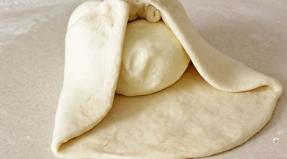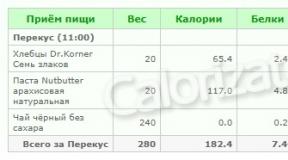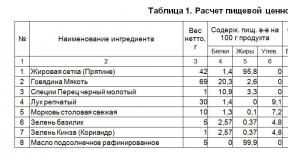How to store eggs properly: helpful tips. Early research into the effects of low temperatures on eggs
A hatching egg is an egg that is placed in an incubator or laid in a hen to hatch offspring. Unlike a table egg, an incubation egg must necessarily have an embryo.
At poultry farms, all eggs that are intended for laying in an incubator are checked using a special device for the presence of an embryo in them (read about what is ovoscopy of chicken eggs and how it is carried out, and from you you will learn about the rules for selecting and checking material for obtaining offspring). At home, the cohabitation of females with a rooster serves as a guarantee that the egg is incubation. Moreover, not all eggs can contain embryos.
Saving features
ATTENTION: The room where it will take place must be equipped with special devices that allow you to measure the level of humidity and temperature. Moreover, there should be several similar devices. This will allow you to get reliable data.
The place where the material will be stored must be well ventilated.... Since the shell is very thin and delicate, it absorbs various odors and aromas. Drafts that affect moisture evaporation should be avoided. After all, it is she who is so important for eggs.
Can I store at room temperature?
It is possible to store material for obtaining offspring of chickens at room temperature if it does not exceed 12-18 degrees. It is best to place eggs on a windowsill with an open window.
Term
If you observe the required temperature and humidity level, then eggs can be stored for 5-7 days. It has been proven that if the material is kept at room temperature for the specified time before incubation, the chicks hatch much better.
But the following factors influence the storage duration.:
You will find more information on the incubation period for chicken eggs in.
Degrees
At what temperature should chicken eggs be stored? If eggs will be stored for more than 14 days, then it is worth maintaining a temperature regime of 8-12 degrees. If the material does not lie longer than 8 days, then the storage temperature of the eggs may be at 15 degrees.
2-day storage is allowed at a temperature within 18 degrees... This temperature regime is below the "physiological level" (19-27 degrees). So there is no significant development of the embryo at this temperature regime.
IMPORTANT: Chicken embryo growth can be restored at 21-22 degrees. But with these indicators, its development is carried out abnormally: the blastodisc grows, there is no differentiation of the germ layers, deformity arises and the development of the embryo is inhibited.
Table 1- Temperature conditions
| Incubation period | Days | Temperature | Humidity | Turn | Airing |
| 1 | 1-7 | 37.8-38.0 ° C | 55-60% | 4-8 times a day | - |
| 2 | 8-14 | 37.8-38.0 ° C | 50% | 4-8 times a day | - |
| 3 | 15-18 | 37.8-38.0 ° C | 45% | 4-8 times a day | 2 times a day for 10-15 minutes |
| 4 | 19-21 | 37.5-37.7 ° C | 70% | - | - |
You can learn more about the incubation mode of chicken eggs in different periods, as well as see tables of the optimal temperature, humidity and other factors by day.
How to keep warm
The stability of the temperature regime in the incubator depends on the comfort temperature in the room where the incubator is installed. This is especially true for an incubator with PVC walls. Plastic conducts heat well if it's cold outside.
The maintenance of temperature is influenced by the volume of liquid that is concentrated in the incubator pan. The higher the water level, the more stable it is maintained.
In addition, it is extremely important to provide a regular supply of fresh air. At first, air exchange should be minimal. But as the embryos develop, air exchange increases. Air is very important in the last days, when the embryo switches to pulmonary respiration.:

Consequences of Wrong Conditions
Overheating of eggs is hyperthermia. Taking into account the time, the influence of this factor, there are various changes in the development of the embryo.:
- If the temperature indicators are increased to 40 degrees and above, then within 2-3 hours in the first days of incubation, embryos die and a large number of blood ruts are formed. Some of the embryos continue to develop with severe symptoms of various deformities.
Among them, it is worth noting the deformities of the head: non-overgrowth or underdevelopment of the skull, due to which a cerebral hernia is formed, unilateral or bilateral underdevelopment of the eyes occurs - anisophthalmia.
- When overheating on the 3rd-6th day of incubation, the amnion and abdominal cavity are formed. The latter remains open, in the internal organs - naked.
- With overheating on average incubation days, hyperemia of the embryonic membranes and embryos occurs. They develop hemorrhages under the skin and in internal organs. The amnion fluid is scarlet, hemorrhages in allantois are noticeable.
- When overheating in the last incubation days, premature pecking and hatching occurs. The chicks are small, and their umbilical cord does not heal well.
The process is complex and responsible. In addition to the fact that it is necessary to prepare high-quality material, it is also necessary to observe a number of conditions during its storage, one of which remains the normal temperature regime.
If you do not constantly monitor him and exceed the norm, but this is fraught with young animals with deviations and deformities.
Most often they are used for hatching chickens. Read our materials about what equipment options exist and how to make such a device yourself, as well as what is at room temperature according to SanPiN.
This process is not as complicated as it seems at first glance, although it requires increased attention and responsibility.
Useful video
Watch a video about the storage features of hatching eggs:
How to store eggs correctly? Those who buy them in the store do not ask such a question. But for those who keep domestic chickens - the topic is very relevant. It's always easier in the store, go, buy, eat. Domestic chickens lay regularly only in summer or spring. In autumn or winter, you can go without eggs.
Can such a perishable product be stored long enough to have summer testicles in winter? It turns out you can.
Proven method
This method allows you to properly store eggs for up to six months, without fear of rotting or contamination with putrefactive bacteria. You will need melted lard, unsalted or any other animal fat, a dark, cool place, eggs themselves. They should be unfertilized with no cracks or other signs of damage. Desirable - immediately from the chicken.
With a simple pencil, they sign the date right on the shell, day, month. Then carefully coat with lard on all sides with a thin layer. Placed on cardboard or wooden trays, then left in a room that is cool, but does not freeze. It can be an underground floor, a canopy, a heated balcony.
This method was popular with our grandmothers when they didn't hear about refrigerators. Of course, it's better not to keep that much, but if you really need to ...
By the way, lard is well replaced with glycerin or petroleum jelly. Then the shelf life of the testicles is reduced to 4 months.
Council. It is strictly forbidden to wash eggs before storing them! It is better to do this just before use.
Refrigerator - more familiar
Any eggs, homemade or factory-made, are perfectly stored in the presence of an ordinary refrigerator. Many manufacturers of refrigeration equipment equip the unit door with a special tray. Ideal if this tray is removable. Because the door is far from the best place to store eggs properly. Constant movement with an influx of warm air when opening - and now the chickens are barking or the "most pleasant" hydrogen sulfide amber covers.

It is advisable to keep the tray of eggs close to the freezer compartment or to the cooling holes. And the testicles themselves are properly stored with the sharp end down. This will place the yolk in the middle of the protein and will not come into contact with the air bubble from the blunt side.
If the eggshell is very dirty, it is advisable to wrap it in plain paper so as not to stain the tray. Just do not wash before bookmarking !. But just before use - please. Even in three waters with five rinses.
Council. It is best to place the egg carton in the fruit and vegetable compartment. Through a porous shell, the protein remarkably absorbs the smells of sausage, smoked meats, cheese. And there are no strong sources of flavor in the department.
The refrigerator has broken. What to do?
We present the situation. No fridge. No, that's all. The electricity was cut off, broke, but you never know? Or they came to the dacha and bought a cell on the occasion of the neighbors, two, they didn't eat everything at once, but there was no cellar or basement. It's a pity to throw it away. There is an exit.
There are several methods for storing eggs properly at room temperature. All of them have been tested by several generations.
- Vegetable oil. Eggs are smeared with a thin layer of any oil (corn, olive, sunflower), then they are stored in the darkest cool place of the room. For example, the lower cupboard. It should be borne in mind that olive oil goes rancid faster than others.
- Egg white. Without beating, cover the shell with a layer of protein. After drying, apply the second one. Then, after final drying, the eggs are wrapped in paper and sent for storage. You can put them with a tray under the bed. It's dark and cooler than the room. For reliability, you can add a third layer.
- Salt. Salt is poured into the bottom of a small box in a thick layer. The eggs are laid with the sharp end down so that the shell does not touch. Fall asleep with a generous portion of coarse salt. There are two such layers. If you put more, the shells may crack. Salt absorbs moisture remarkably, so the testicles should not lie for more than 3 months, they will begin to dry out.
- Paraffin or wax. Melt it in a water bath. With a quick, gentle movement, dip the egg into the resulting liquid. Allow to solidify and put away for storage. They try to keep the wax layer as little damaged as possible.
All these methods are correct, because they close the shell from the access of pathogenic bacteria, while simultaneously allowing the eggs to breathe.
Council. It is recommended that the testicles be tested for an "expiration date" before trying any storage recipe. You never know what the neighbor's grandmother said! Or the factory markings are perfectly counterfeit. The salt water method is the most handy and gives the most reliable results.
Alternative ways
In the vastness of the mighty Internet network, you can find such recipes, from which sometimes the hair on the nape of the neck stands on end. What is it worth only storing eggs with a solution of potassium permanganate or lime, and even 9-12 months! Moreover, such shock doses of drugs are indicated that it is just right for the shell to dissolve. You can try ... If only as an experiment ... to feel a real aroma, like the famous Norwegian surstremming ... For extreme lovers. Or, nevertheless, to clarify the doses for the preparation of the mixture.

What about the method of storing eggs in sugar syrup? For 2 liters of water - 2 kg of sugar, boil, cool. Lower testicles, let them float. Well, it would have been written "dip, dry", but no! Exactly - they swim. What will emerge there after 6 months? What is ichthyander or homunculus?
There are some pretty funny methods though. For example, it is argued that instead of being dragged to the refrigerator or cooked for breakfast, homemade eggs should be buried in a tub or tank of grain. The main thing is to remember from which edge? And how to dig it is interesting. The attraction is straight!
Or a way to use fish glue. The effect will undoubtedly be, since the method resembles smearing with protein. Another question: where to get so much glue?
Some comrades pour the contents of the eggs into containers, then freeze them. After thawing, all nutrients and vitamins are retained. The only negative: defrosted whites with yolks cannot be whipped. You won't be able to make an omelet, scrambled eggs are quite real.
Drying. Generally nonsense. After all the procedures done, egg powder remains. Stored for a long time, no taste or smell.
Council. After any alternative storage method, do not break all testicles into one dish. Better each separately. After visual and olfactory inspection, it can be poured into a frying pan, into dough, etc.
Boiled - safer?
Many people mistakenly believe that it is correct to store eggs - only boiled ones. Try an experiment: put two eggs next to each other at room temperature - raw and boiled. Check the result after a week. To avoid olfactory shock, it is recommended to make the comparison outdoors or with good ventilation.
So it is in the refrigerator. A raw egg can be stored up to 40-50 days, a boiled one - only 5.
Council. If you really want to store boiled testicles, it is recommended to pickle them. Of course, the taste will be completely different, but at least there will be no risk of poisoning.

- Eggs can only be stored properly when they are initially fresh. Factory stored no more than 45 days. Pets - no more than 4 months.
- Quail, caesar's eggs are stored longer than chicken, duck eggs. They contain amino acids that prevent the entry of putrefactive bacteria.
- The ideal temperature for storage is + 2-4 ° С, air humidity is about 75-80%. Regular airing, darkness is welcome.
- If there is no room in the vegetable compartment, it is advisable to pack the eggs more tightly, otherwise the smells of other foods will permeate the protein.
- Colored eggs are stored in the same way as boiled eggs. If thermal film was used, the period is reduced by 2-3 days.
- Instead of salt, sand or ash from oak wood is sometimes used for storage.
- With the "grease" method, the protein may become slightly cloudy. This does not affect taste or nutritional qualities in any way.
- A broken egg can be kept in the refrigerator for 24 hours. Boiled without shell - 2 days.
How to store eggs correctly? To avoid unexpected surprises - no more than 3 weeks. Better to buy new ones more often. It would be right to take care of your health, eating fresh products, rather than spending money on treatment after experiments on safety.
Video: how to store chicken eggs in the refrigerator
How to store chicken eggs correctly?
Eggs should be placed in the fridge. It is recommended to store eggs in the coldest place of the refrigerator (closer to the back wall) separately from other products and in special packaging. Although most refrigerators have a dedicated egg compartment on the door, it is wrong to store eggs in the refrigerator door. This is the warmest place, and the refrigerator is often opened and the eggs are exposed to frequent temperature fluctuations.
Why is it better to store eggs in a container?
Eggshells have thousands of pores through which odors and bacteria can penetrate. Therefore, eggs should be kept in special trays and away from foods with a strong smell, so they stay fresh longer. In addition, storage in egg trays will prevent the spread of bacteria from eggs to neighboring foods.
What is the best way to store eggs - sharp or blunt end down?
Eggs are best laid sharp end down, so that the yolks are centered. In this position, the eggs will be able to "breathe" and maintain their freshness longer, since there are more pores at the blunt end through which oxygen enters the egg and carbon dioxide escapes. In addition, there is an air space at the blunt end of the egg, in which there can be bacteria, and when turned over to the blunt end, they float up and fall into the egg.
Can eggs be stored in the freezer?
No, you shouldn't store eggs in the freezer - they will freeze there. The ideal temperature for storing eggs is + 4 ° C.
How long do eggs keep in the refrigerator?
Fresh eggs are kept in the refrigerator 4-5 weeks from the date of manufacture. It is not recommended to store eggs for more than 6 weeks, even in the refrigerator. Eggs are stored for a rather long time due to the fact that there is a protective film on their surface. Therefore, it is advisable to wash them immediately before cooking.
How long can boiled eggs be stored?
In-shell hard boiled eggs can be stored in the refrigerator up to 7 days,but it is best to eat them within 3 days. Boiling destroys the protective film on the shell, which helps the egg to keep longer. Dishes with eggs must be kept in the refrigerator. Egg salads are stored for 3-4 days, stuffed eggs - 2-3 days.
Can eggs be stored at room temperature?
You can, but better not. Eggs spoil very quickly without a refrigerator, even in one day at room temperature they lose their freshness. One day of storing eggs at room temperature equals one week of storing them in the refrigerator.
How much does one chicken egg weigh?
Egg weight ranges from 35 to 75 grams. The average weight of a chicken egg is 50-55 grams. This means that a dozen medium eggs can weigh 500-550 grams, and a kilogram will be about 20 eggs.
How much do egg white and yolk weigh separately?
The weight of the yolk is about 1/3 of the weight of the whole egg, and the weight of the protein is 2/3 of the weight of the egg. That is, in the average egg yolk weighs 17 grams, and egg protein weighs 34 grams. And in one kilogram there will be 59 yolks or 30 whites.
What determines the color of the yolk?
The color of the egg yolk - light yellow or bright orange - depends on the diet of the chicken. Contained in chicken feed carotenoids give a yellow color to the yolk. Carotenoids are naturally occurring natural pigments of yellow, orange or red color. They give color to many plants, including vegetables and fruits. The more the chicken eats feed containing carotenoids (corn, alfalfa, grass meal), the brighter the yolk color is. However, not all carotenoids give the yolk color. For example, canthaxanthin and lutein impart a golden yellow color to the yolk, while beta-carotene does not affect color. It should be noted that the color of the yolk does not affect the quality, nutritional value and taste of the egg.
21. How to avoid food poisoning while eating eggs?
When buying eggs, check the expiration date. It is better to buy eggs in the store - there is usually a date stamped on the shell. Make sure the eggs are not cracked or broken - they are best avoided. If the egg turns out to be stale or has an unpleasant odor, it must be discarded immediately and in no case should it be consumed or given to animals, otherwise you can get severe poisoning. Fresher eggs are less likely to breed Salmonella. A natural defense mechanism inhibits their growth in eggs for 20 days. It is better not to take risks and not drink raw eggs, do not cook soft-boiled eggs or fried eggs. Recipes using raw eggs should be avoided.
Bacteria can be found both inside the eggs and on the shell, therefore, before cooking, the eggs must be thoroughly washed with hot water (temperature 80 ° C) for at least 7 seconds. The fact is that Salmonella bacteria can enter the egg from the surface of the eggshell when it breaks. In addition, bacteria very easily spread to hands, dishes, table, other foods and objects, so be sure to wash your hands before and after touching the eggs, and after cooking, wash everything that touches the eggs. Be sure to wash your hands after breaking a raw egg for cooking. When cooking, never place raw food and then cooked food on the same plate. Even properly prepared food can become contaminated with bacteria if drops or small particles of raw food accidentally enter it. Make sure that the scrambled eggs or scrambled eggs are well done and do not remain soggy. Boil well or fry semi-finished products (dumplings, cutlets, and others). Cooking food until cooked is the only way to kill potentially harmful bacteria and avoid severe food poisoning.
22. What is the most famous bacteria in eggs?
It is salmonella that lives in poultry eggs, meat, milk and dairy products. Salmonellosis (or paratyphoid fever) is an acute intestinal disease caused by various types of Salmonella, a very common form of food poisoning. The main route of infection with Salmonella is through food. These bacteria multiply rapidly in food (especially when warm), but do not change their taste or appearance. Salmonella accumulate in animal products, tolerate drying, freezing well, and survive in water for up to 2 months. They are resistant to smoking, salting, pickling, but quickly deteriorate when boiled. The incubation period lasts from 2-6 hours to 2-3 days. Salmonellosis is characterized by damage to the gastrointestinal tract and the development of intoxication and is accompanied by diarrhea, nausea, vomiting, stomach cramps, headache, malaise, and fever. In this case, you should immediately consult a doctor. Salmonella enteritidis (Salmonella enteritidis) is the most common type of such bacteria in many countries.
23. How many minutes do you need to cook the eggs?
Salmonella is very resistant and die only after prolonged heat treatment. They reproduce at temperatures from +7 to + 45 ° С, and the best temperature for them is + 35-37 ° С. At temperatures below + 5 ° C, the growth of Salmonella stops. At + 70-75 ° C, salmonella die within 5-10 minutes, and instantly when boiled. Therefore, only hard-boiled eggs can be completely safe. Eggs should be boiled for 8-10 minutes from the moment the water boils, and fried eggs or omelette until dry.
 24.
At what temperature do egg white and yolk harden?
24.
At what temperature do egg white and yolk harden?
The protein thickens at + 60 ° C and hardens at + 65 ° C. The yolk begins to thicken at + 65 ° C and becomes hard at + 73 ° C.
25. At what temperature should you cook and store dishes containing eggs?
When cooking, dishes containing eggs must be heated to a temperature of at least + 70 ° C to kill bacteria. It is also necessary to reheat food that has been stored for some time to a temperature not lower than + 70 ° C. Food should be stored at temperatures above + 60 ° C or below + 10 ° C. Cooked food should not be stored at room temperature. At + 20-40 ° C every 20 minutes the number of bacteria doubles and the risk of poisoning increases. A favorable environment for the growth of microbes is warm and humid. And the cold stops their growth. Therefore, after eating, the remaining food should be immediately put into the refrigerator.
26. How to store chicken eggs correctly?
Eggs should be placed in the refrigerator immediately after purchasing. It is recommended to store eggs in the coldest place of the refrigerator (closer to the back wall) separately from other products and in special packaging. Although most refrigerators have a dedicated egg compartment on the door, it is wrong to store eggs in the refrigerator door. This is the warmest place, and the refrigerator is often opened and the eggs are exposed to frequent temperature fluctuations.
27. Why is it better to store eggs in a container?
Eggshells have thousands of pores through which odors and bacteria can penetrate. Therefore, eggs should be kept in special trays and away from foods with a strong smell, so they stay fresh longer. In addition, storage in egg trays will prevent the spread of bacteria from eggs to neighboring foods.
28. What is the best way to store eggs - sharp or blunt end down?
Eggs are best placed with the pointed end down so that the yolks are centered. In this position, the eggs will be able to "breathe" and maintain their freshness longer, since there are more pores at the blunt end through which oxygen enters the egg and carbon dioxide escapes. In addition, there is an air space at the blunt end of the egg, which can contain bacteria, and when turned over to the blunt end, they float up and enter the egg.
29. Can eggs be stored in the freezer?
No, you shouldn't store eggs in the freezer - they will freeze there. The ideal temperature for storing eggs is + 4 ° C.
30. How long do eggs keep in the refrigerator?
Fresh eggs are stored in the refrigerator for 4-5 weeks from the date of production. It is not recommended to store eggs for more than 6 weeks, even in the refrigerator. Eggs are stored for a rather long time due to the fact that there is a protective film on their surface. Therefore, it is advisable to wash them immediately before cooking.
The egg is a mysterious, magical and legendary product.
The Slavs met a chicken and a rooster several thousand years ago. It is noteworthy that in ancient times they raised chickens not for the sake of eggs and meat, but as a decorative bird. Roosters served as "alarm clocks", and chickens were kept to decorate gardens.
The egg is a symbol of new life and rebirth
Over time, recognition and eggs came, the attitude towards which people developed a special one, it was considered a symbol of new life and rebirth. The very new life, the source of which, indeed, is the egg, was a mystery to the ancient peoples. Some believed that the world began with a huge egg. The pagans used it in their rituals, since the egg yolk reminded them of the sun, which was considered the most powerful natural phenomenon.
 The egg is a symbol of new life and rebirth
The egg is a symbol of new life and rebirth The egg has always played a big role as a symbol of Slavic holidays and ceremonies. For example, on Easter, we all know a bright, painted egg (dye, pysanka) symbolizing spring renewal and the beginning of a new life.
Useful properties of eggs
The egg is not only a symbolic product, being the largest cell in the world, it is very useful and nutritious. Since the egg white is a complete digestible protein, which makes up 75% of the egg weight. And the yolk contains vitamins B1, B2, D, E, PP, carotene, mineral salts and lecithin. In our time, no everyday meal or holiday menus are unthinkable without eggs.
Egg storage secrets
It should be noted that on the egg shell there are on average up to 17,000 tiny pores through which foreign odors and microbes penetrate into the egg. Therefore, great attention is paid to egg storage. We will tell you about the little secrets that you need to know in order to properly store this not simple, amazing and delicate product.

So, eggs intended for storage must be whole, clean and fresh - 5-6 days old. They must be cooled as soon as possible after demolition, kept clean and only dry (do not rinse with water). It is best to lay daily eggs with strong shells for storage and store them in the cold, in a clean, odorless container, at a temperature - (-1 ° C) with a humidity of 72-75%. Laying the eggs with the sharp edge down. Under these conditions, eggs remain fresh for 4-6 months. Eggs freeze at temperatures below - (-2 ° C).
Storage conditions for more than a month
However, you must agree that at home, not all the time, it turns out, withstand this storage mode. To keep the eggs long enough, more than a month, you need to do the following.
Prepare a container for storage - it can be wooden, plastic, enameled, glass, clay. The essence of this storage method is that one of the following filler materials is poured onto the bottom of the container. Eggs are laid with the sharp end down so that they do not touch each other, they are covered with material and so several rows, depending on the size of the container. It is best to lay 5-6 rows.
The filler can be used:
- dry table salt;
- dry sawdust or shavings;
- dry wood ash or powdered charcoal;
- talcum powder or chalk powder;
- fine peat;
- dry and clean grain (wheat, oats, barley, rye, millet).

Put the top layer of filler 2-3 cm. Put the eggs in a cool dark (5-8 ° С) place.
Another storage method - eggs must be treated with sunflower oil, melted lard (lard), petroleum jelly, immersing them for 5 seconds in an appropriate fat solution. Or wipe it with a clean cloth soaked in one of the specified fats. Wrap the processed eggs in paper, put in a box. Store in a cool, dark, ventilated place.
Storing eggs in a lime solution
Alternatively, eggs can be stored in a lime solution. For which 600 - 800 grams of quicklime are placed in a bucket, two liters of boiled chilled water are poured, after dissolving the lime (carefully! Quicklime releases a lot of heat when dissolved, resulting in boiling and the solution is sprayed) add water to 10 liters, mix well. Moreover, it is necessary to mix several times, at intervals of 2-3 hours. The resulting solution must be filtered, it is enough for laying 120 - 150 eggs.
Eggs are laid with the sharp end down and poured with a solution. With this method of storage, it is better to use glass or clay containers. The solution level above the eggs should be 5 - 10 cm. After a lime film forms on the surface of the solution, the container must be tightly closed with a lid. You can seal it with wax or paraffin and put it in a cool dry place (at a temperature of 10-12 ° C, eggs can be stored for up to 6 months).
You can use a solution prepared slaked lime... Why take 300 - 400 grams of slaked lime on a bucket of water (10 l).
We have told you the most affordable and reliable ways to store eggs. And if you know and have tested your methods in practice, share with us. Write. Good luck everyone.



















